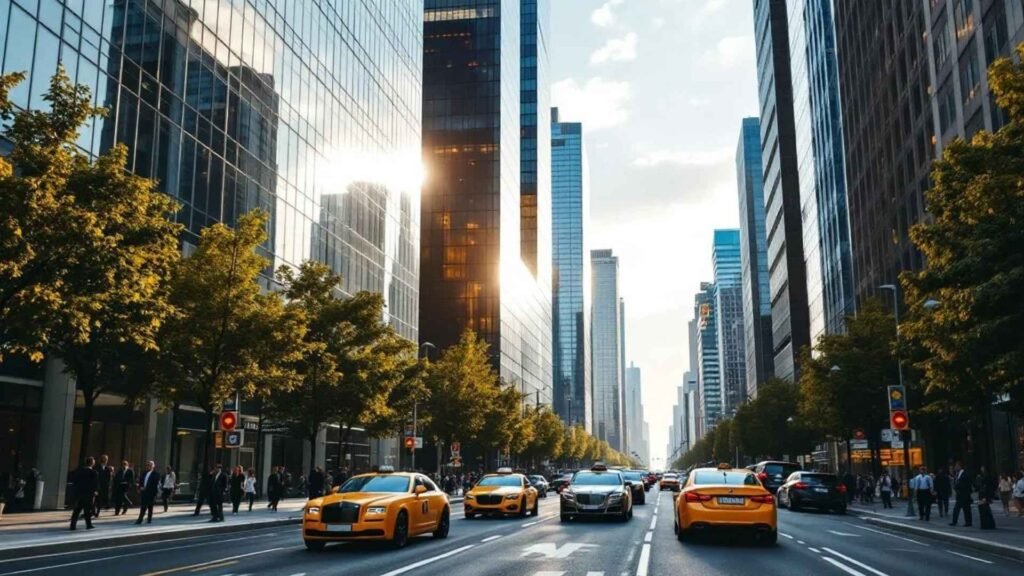Straddling Europe and Asia, Istanbul has become one of the most dynamic real estate markets in the world. With a population exceeding 16 million, a growing economy, and an ever-evolving skyline, the city offers both short-term gains and long-term stability for investors.
Over the past decade, Istanbul’s property sector has been fueled by rapid urban transformation, large-scale infrastructure projects, and increasing foreign investment. Annual property value growth in prime districts has often surpassed 20–30%, while rental yields remain attractive compared to other global metropolises.
Key drivers of the market include:
- Strategic location as a hub for trade, finance, and tourism.
- Urban regeneration projects that elevate property standards and values.
- Government incentives for foreign buyers, including citizenship through investment starting from USD 400,000.
- Diverse property portfolio ranging from luxury Bosphorus mansions to modern residential complexes and high-yield commercial spaces.
With continued infrastructure development, such as the Istanbul Financial Center and transport projects like the new airport and Kanal Istanbul, the city’s real estate market is poised for further growth. For global investors seeking strong returns and a strategic foothold in the region, Istanbul remains a compelling choice.
Istanbul’s Investment Districts and Potential

Istanbul offers a diverse real estate landscape where each district presents unique opportunities for investors. From prestigious waterfront residences to high-yield commercial hubs, location plays a key role in determining long-term profitability.
1. Bosphorus Waterfront and Luxury Residential Areas
Neighborhoods like Bebek, Arnavutköy, and Kandilli are known for their stunning sea views and historic mansions. These areas maintain strong value and prestige, making them ideal for high-capital, long-term investments.
2. Urban Regeneration Zones
Districts such as Kadıköy (Fikirtepe), Kağıthane, and Gaziosmanpaşa are undergoing rapid redevelopment. Lower entry prices and significant medium-term appreciation potential attract both local and foreign buyers.
3. Commercial Real Estate Hubs
Levent, Maslak, and Ataşehir are Istanbul’s core business districts. Projects like the Istanbul Financial Center are boosting demand for premium office spaces, enhancing the appeal of commercial investments.
4. Areas Near Major Infrastructure Projects
Regions surrounding the new Istanbul Airport and along the planned Kanal Istanbul route hold strong long-term potential for residential and land investments.
Conclusion:
By carefully selecting districts aligned with market trends and upcoming infrastructure projects, investors can secure high returns while benefiting from Istanbul’s strategic position and growing economy.
Types of Real Estate Investment in Istanbul

Istanbul offers a diverse range of investment opportunities for both local and international buyers. The city’s strategic location, expanding infrastructure, and dynamic economy create strong potential across multiple real estate segments.
1. Residential Property Investment
From luxury residences and modern city-center apartments to Bosphorus-view villas, residential properties in Istanbul are highly sought after. They offer attractive rental yields and significant long-term capital appreciation.
2. Commercial Real Estate
Office buildings, shopping centers, and hotels in prime business districts such as Levent, Maslak, and Ataşehir provide stable rental income. The Istanbul Financial Center project further enhances the appeal of commercial investments.
3. Land and Development Projects
Plots near the planned Kanal Istanbul and around the new Istanbul Airport have high potential for long-term value growth. Large-scale construction projects and urban regeneration partnerships also present lucrative opportunities.
Conclusion:
The ideal investment type depends on the investor’s budget, goals, and risk tolerance. With its variety and growth potential, Istanbul remains one of the most attractive cities for real estate investment in the region.
Advantages for Foreign Investors
Istanbul’s real estate market offers foreign investors both high return potential and a strategic location at the crossroads of Europe and Asia. Turkey’s investor-friendly policies and ongoing infrastructure projects continue to attract international capital.
1. Citizenship by Investment
Foreign buyers who invest USD 400,000 or more in property are eligible to apply for Turkish citizenship for themselves and their families.
2. High Rental Yields
Investments in central and tourist-friendly areas can generate annual rental yields of 6–10%, especially through short-term rentals such as Airbnb.
3. Competitive Tax Rates
Turkey offers more favorable real estate tax rates compared to many European countries.
4. Growing Market and Infrastructure
Mega projects, financial centers, and transportation developments significantly increase the long-term value potential of investments.
Legal Process and Key Considerations
When investing in real estate in Istanbul, especially as a foreign buyer, it is essential to follow the legal process carefully. Mistakes or incomplete procedures can lead to significant time and financial losses.
1. Title Deed and Ownership Verification
Before purchase, ensure that the property’s title deed is clear and that ownership rights can be transferred without complications.
2. Legal Consultation
Work with a local lawyer to draft contracts in compliance with Turkish regulations and to ensure a smooth transaction process.
3. Permits and Licenses
For construction or renovation projects, obtaining the necessary permits and approvals from the municipality is mandatory.
4. Currency and Payment Regulations
For foreign buyers, the sales price can be determined in foreign currency, but payment must be made in Turkish Lira in accordance with local laws.
Future Outlook
Istanbul’s real estate and construction sectors are projected to sustain strong growth over the next 5–10 years, supported by ongoing infrastructure investments and rising foreign investor interest. Mega projects such as Kanal Istanbul, the Istanbul Financial Center, and expanded transportation networks are expected to significantly boost property values in strategic locations.
Emerging trends point toward a growing demand for smart city projects and green building–certified developments, driven by both government incentives and an increasing focus on sustainability. Investors who target eco-friendly and technology-integrated projects are likely to benefit from stronger long-term returns.
In addition, the shift toward mixed-use developments — combining residential, commercial, and recreational spaces — is set to redefine urban living in Istanbul, enhancing both rental yields and resale value potential. With its unique position as a bridge between Europe and Asia, Istanbul remains a prime market for forward-looking, diversified investment strategies.

